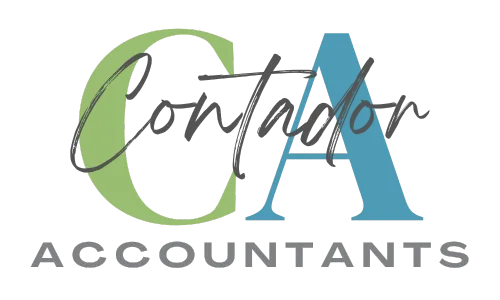Many small business owners are only concerned about keeping their books up-to-date and making sure they’re ready come tax time. The rest of the time, they’re blind to what happens with their finances and how to use their financial data to make better business decisions.
That is where management accounting comes in; and no, it’s not only large businesses who can benefit from forecasts and management reports, in fact, this can be the key ingredient SMEs need to be successful in business.
Management accounting is often misunderstood, so let’s look at what it is, and how it can help to set your business up for success.
What Is Management Accounting?
Management accounting goes beyond daily bookkeeping and accounting. Management reports and forecasts provide financial information which can help management make better business decisions in the medium and long-term.
Management accounting includes things like reports on past figures, budgets, cash flow forecasts, product or service costing, scenario modelling, and measuring key performance indicators (KPIs).
While financial accounting looks at the past, managerial accounting looks at the future.
Management accounting can turn complex financial data into actionable insights to guide your overall business strategy and help you achieve your business goals.
Let’s look at some practical examples of what management accounting can do for your business.
Planning, Budgeting, and Forecasting
The first way that management accounting can help you is with planning. You can analyse historical figures and use that, combined with industry and market trends, to predict and plan for the future.
Here are a few examples:
- Business plan: A strategic roadmap to get your business from where you are now, to where you want to go. A business plan is not just for new businesses who want to secure capital from investors; it’s a necessity for any business who wants to be successful. If you don’t have a business plan yet, or yours is outdated, or you want to scale or pivot into a new direction, you cannot do it without a well-thought-out, strategic business plan.
- Budget: A budget is a financial plan setting out estimated income and expenses for the future, based on historical data and your business goals. It also helps you to plan for future expenses, both expected and unexpected.
- Cash flow forecast: A cash flow forecast shows the amount of money your business can expect to receive, and pay out for a specific period. The main difference between a budget and a cash flow forecast is that the latter takes payment terms into account. For instance, if you’ve made a sale in month one, but your terms are 30 days, you will only receive the money from the sale in month two.
- Sales forecast: In a sales forecast you’ll estimate future sales, based on historical data, your goals, as well as seasonal trends. A sales forecast can help you to control stock volumes more accurately, as well as your workforce needs and marketing activities.
- Production forecast: A production forecast predicts future production needs, including the number of units that need to be produced each month, week, or day, the staff necessary to produce these, when to order raw materials, etc. It goes hand-in-hand with your sales forecast.
Controlling
The next function of management accounting is around controlling. With controlling, you can spot problems before they escalate and adjust your future operations accordingly. What do we mean by this?
Controlling is basically establishing whether you’re on track with the plans you’ve put into place. For instance, did you follow through on the steps you’ve set out in your business plan? Did you reach the sales estimated in the sales forecast? Did you deviate from your budget, and why? What can you do to fix it?
For instance, let’s say you expected to sell 100 units in month 3, but you only sold 50 units. First, you need to analyse why there is a deviation. Was it something internal, like your salespeople underperforming, or maybe the production department did not produce products on time. It can also be external, like a new competitor on the market with lower prices or a better product, or economic issues, like a recession.
Once you know why you’re off track, you can decide what you need to do to rectify the problems, if that’s something within your power, or how you need to adjust your expectations and plan for these new factors.
For instance, if it’s an internal problem, you have to look at what you can do to rectify the problem. If your salespeople aren’t performing to standard, you may want to give them more training. If your production department did not produce as they should have, you might need to streamline production processes or control your inventory better.
If the problems are external, like a recession or a new player in the market, you need to look at what you can do to reduce your risks. For instance, you can work on your marketing strategy to draw attention from your new competition back to you. Or if it’s a recession, you may need to look at how to reduce costs or focus less on your luxury products.
Strategic Business Decisions
Finally, let’s look at how management accounting can help you to plan for the future confidently.
1. Hiring Staff
Management accounting can help you with your hiring decisions. For instance, when you set wages or if you want to hire new staff members, you first need to know how much you can afford to spend.
You may also be faced with the decision of who to hire next. Should you hire a salesperson or a production person? Should you employ someone full-time, or should you rather outsource certain tasks?
Additionally, you can also calculate staff productivity.
2. Investment Decisions
Whether you’re looking at buying a new company car, new machinery and equipment, a new building, or even another business, management accounting is crucial.
Many businesses have gone under or sustained huge cash constraints because of making bad investment decisions. For instance, you may buy a new truck for the business, only to realise six months later that you can’t afford it. Or you buy a new business at a ‘bargain’, but you underestimated the amount of work and additional spending it’s going to take to bring the business up and running and profitable.
3. Reviewing Products
Calculating the profitability of your products or services is one of the most important things any business needs to do. For instance, let’s say you sell ten different products. Five of them may be profitable, while the rest make a loss. If you don’t calculate profitability for each product separately, you may not even realise that you have bad apples. Once you know this, you can decide whether you want to discontinue the products, raise your prices, or investigate ways to increase the profitability on these products.
4. Launching New Products or Services
Just like reviewing existing products, it’s important to plan properly for when you launch new products or services. With management accounting, you can work out how much you need to charge for new products, how many products you need to sell to break even, and what your staff requirements will be to produce these products.
5. Make or Buy Evaluations
Manufacturing your own products is often one of the most expensive parts of running a business. Usually, you have three options: Making your own products, buying finished products to resell, or outsourcing production, which is a combination of the two. There are many reasons why you may choose each option, like quality, speed of production, control, and of course, the financial implications of each option, which is where solid management accounting comes in.
Are You Tapping into Every Benefit Management Accounting Can Offer?
Without meaningful and actionable insights, you can’t plan for future business moves, and you may make bad decisions that could have been avoided. The better your data analysis and financial plans are, the better prepared you are for future risks.
Many businesses struggle and even close down because they don’t have these insights. We don’t want this to happen to you. We know that you can’t be expected to know everything there is to know about management accounting, and your bookkeeper or accountant may not be equipped with the right skills and experience to fill this role. If you’re looking for expert help to assist you with your management accounting needs, get in touch with us today.

